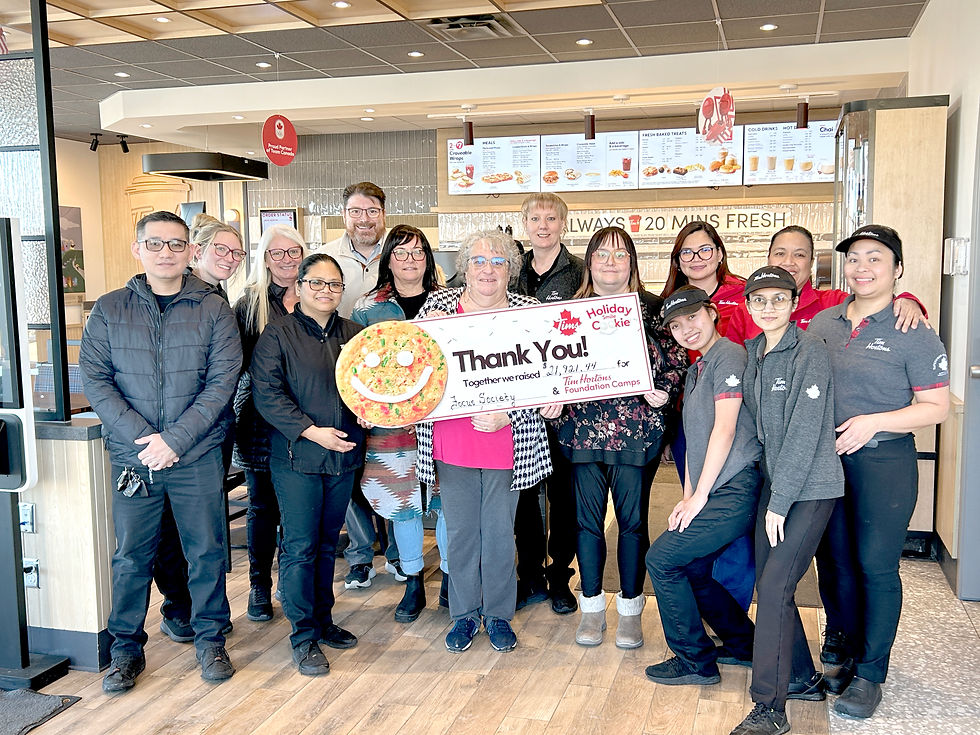Ever Wanted To Own A Sleddog?
- Vermilion Voice
- Mar 7, 2023
- 4 min read

Seppala Siberian Tours near Kitscoty has three Seppala Siberian Sleddog puppies for sale. Owner, Dale Swan, says companionship is their most desirable quality and aside from dog sledding, they can be trained to be indoor dogs, and some people have even trained them to be service dogs.
A litter of six females, he said finally got their purebred status in the Continental Kennel Club. One sold to a musher from Ontario, who finished the Yukon Quest - 100 Mile Race and stopped in last week to pick out a puppy on her way back. Swan only plans to keep one, one will be shipped to northern Alberta, and the other three remain unspoken for.
The Seppala Siberian Sleddog Project keeps track of all the purebred dogs by getting them registered, etc., he found out his kennel has one of the highest percentages of Seppalas in Alberta and said they will be registering all of his dogs this year.
“It’s extremely important to train dogs from the time they are young - especially with Seppalsas because in my own personal experience, if they do one thing wrong, they will keep making the mistake if you don’t correct them right away. They are really smart, but if they get away with things it’s harder to break them of the habit,” said Swan.
Skills that Swan trains his dogs to know include various dogsled commands, as well as common tasks like how to give gentle hugs, shake a paw, or back up. Proper training he says, continues constantly throughout their whole lives because you don’t run them as much in the summer with the heat, they need to be reminded for a couple of runs to jog their memory of the cues each season.
Swan has been dog sledding for approximately 15 years. He recently completed a one-year certificate as a veterinary medical assistant at Lakeland College and said he can use some of the knowledge to better care for his dogs when he is at home offering tours or on the road competing.
“I can tell a lot easier if the dog is having a problem, and narrow it down quicker to what the issue is. It also helped to know what tools to keep with me for anything that may come up,” said Swan.

He plans to start another two-year diploma course in September to become a registered veterinary technician, and as well as helping his own dogs he hopes to get a job at a clinic to help others with their animals.
Swan offered two dog sledding tours this year, helping people cross things they wanted to experience in life off their bucket lists. With his business, he aims to keep dog sledding alive.
“Some people think it’s archaic, and don’t believe too many people do it with all of the new Ski-Doos and machinery out there. With a sled dog team, you don’t run out of gas, they just get tired out. I have always loved dogs and the outdoors, and putting the two together and working with the dogs is fulfilling.
It’s therapeutic for my Dystonia,” said Swan.
Dystonia he said is a rare genetic disorder that he deals with 100 per cent of the time, 24 / 7. It’s more mind than body he said, with his brain firing off rapid impulses to his body. Since having deep brain stimulation, he does not have as many random spasms.
“I don’t let it hinder me with the dog sledding or anything I do. If I can’t do something, I adapt or modify it to make a way for me to do it differently,” said Swan.
Finding the sport wholesome because it keeps people connected to their dogs and the outdoors, he said you also have to know survival skills to participate on the trail including knowing to dress appropriately for the weather and how to live in cold conditions. Racing is a sport in itself, and he said you can also use dog sledding for the simple enjoyment of moving things without having to carry them.
“Sprint sleds are made for small four - ten mile races, touring sleds are for mid-long distance races where you need more gear (food, clothing, food for the dogs, jackets for the dogs) so you are prepared for anything you run into in the wilderness, and freight sleds can be used just for hauling stuff,” said Swan.

He did not race this year as he waited seven months for ankle surgery to remove bone fragments and smooth out a jagged bone which he underwent on February 9. Expecting a six-eight week recovery, he said he is currently not able to bear any weight on it. Because crutches and snow and ice don’t get along, he said he’s growing a little frustrated because he’d like to be out running the dogs.
“If I don’t take care of myself then I can’t take care of my dogs, and I have to take care of mine and my dog’s health before I can do anything else. My girlfriend is currently feeding them and running them in the kennel to blow off energy and steam off of their chains,” said Swan.
He thanked family and friends for helping him care for the dogs while he is recovering. Already preparing for next year, he plans to fix things up around the kennel, change things on the dog box and plan some simple training to make sure he and the dogs are ready to go.
“Next year I expect to be up and running 100 and 10 per cent, running the dogs by both competing in races and taking people out on tours,” said Swan. For serious inquiries you can contact Dale at 780-872-3575.




Comments